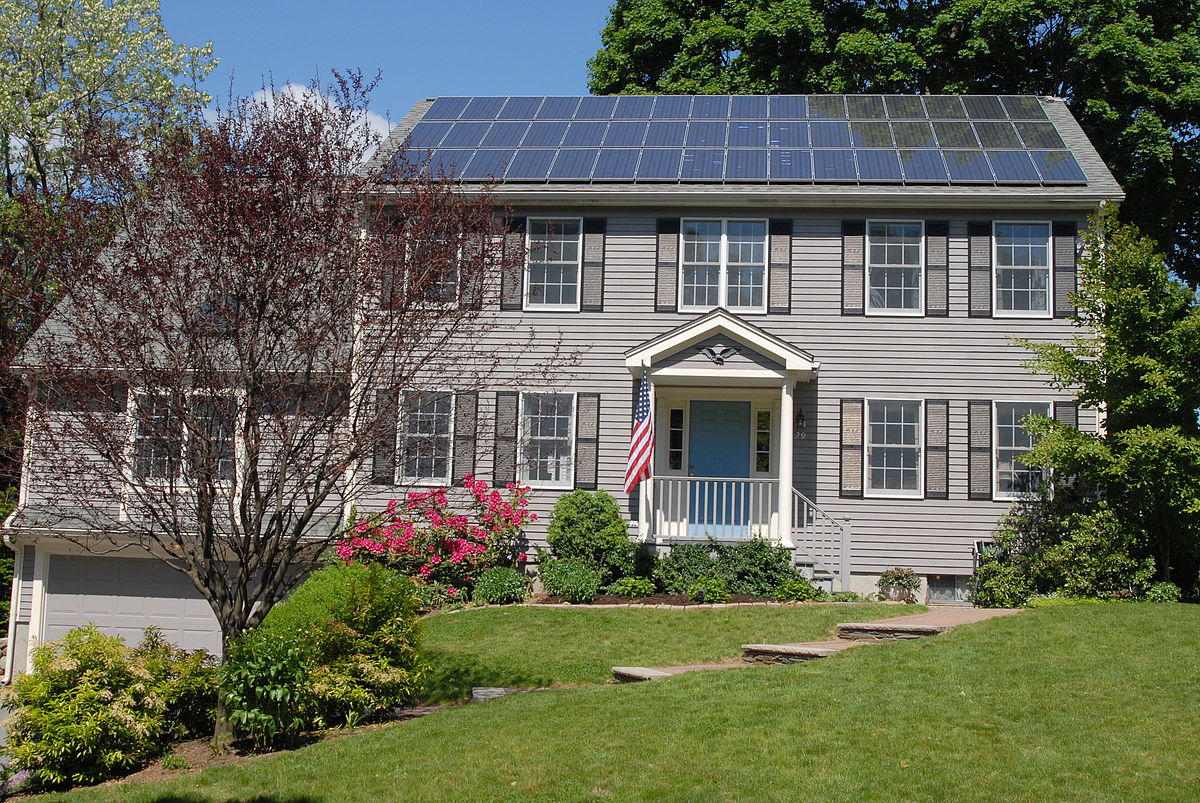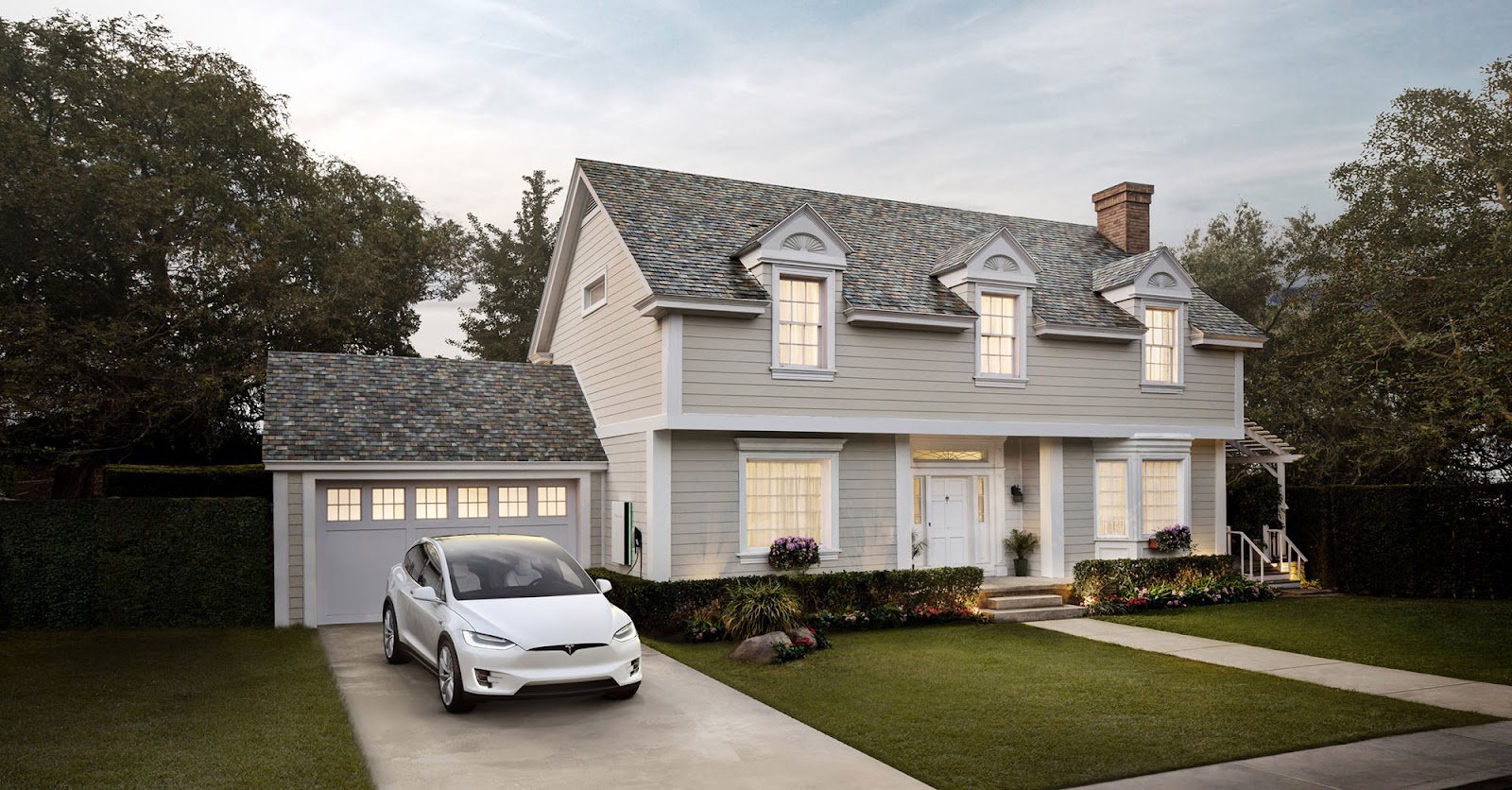
A rooftop of solar panels can create long-term savings for a home or business. (Pixbay)

A rooftop of solar panels can create long-term savings for a home or business. (Pixbay)
Many cities across the United States have some catching up to do when it comes to renewable energy. This has not stopped American homeowners from taking action, however. As of 2014, 400,000 U.S homes have installed solar panels, with a projection between 900,000 and 3.8 million by the year 2020, according to the Union of Concerned Scientists.
To middle class Americans, installing solar panels may seem out of their financial range. However, the cost of solar has gone down in recent years. Scientific American reports that prices for solar panels have fallen between 5-12% in 2015. This price drop includes everything from hardware to installation. However, the biggest contributor to the price drop was the decline in cost for inverters, which convert direct current (DC) electricity to alternating current (AC) electricity, the electric standard for homes.

However, market factors aren’t the sole contributors in the cost decline. The government has played a significant role in making solar more affordable for American households by subsidizing solar through tax credits. Currently, homeowners can receive a tax credit at 30% of the cost of the system. State governments have also set up programs to fund solar installation. New York State for example, allows for a tax credit of up to $5,000. Other state policies can include rebates, tax exemptions, and even property tax exemptions!
So how much does it cost to install solar panels on a residential home? Just like any home project, prices can differ depending on a variety of factors. The biggest determinant is how many kilo-watts the homeowner wants installed. Also,the suppliers and/or installers in different regions can charge varying rates. Solar Power Rocks has a feature on their website that connects customers with trusted solar installers in their area to get a quote on pricing.
The final cost of installation can depend dramatically on what state programs your region offers. However, according to Energy Sage, the average gross cost found in 2017, prior to tax credits, is $16,800. After tax credits the cost can vary between $10,045 and $13,475.
Considering that the price of solar panels is about the cost of a new roof, homeowners may be wary about taking on solar. And while savings vary greatly state by state, there seems to be a common trend: the long term investment can save a homeowner thousands. According to Solar to the People, the average savings for homeowners can be upwards of $10,000 over a 20 year period. In some states the savings can be even larger. Energy Sage calculated that over a 20 year period, homeowners who installed a 5 kilowatt system in Texas saved $14,221; Maryland saved $20,446; New York saved $28,466; and Massachusetts saved $30,243!
Why should people wait 20 years for the financial benefit of solar power? Choosing to install solar panels does not necessarily mean your home is completely off the grid. Many households, decide to use net metering to monitor costs. Net metering is a system that sells your generated power back to the utility company during peak periods of production. This allows you to utilize grid electricity when your household isn’t producing enough electricity, like at nighttime. If you live in an area where solar is very efficient, the utility company may even pay you for your extra electricity.
The future is looking hopeful for solar power. Just this year, Tesla announced its newest innovation in solar: the Tesla Solar Roof. Tesla has designed roof-shingles that have solar panels built inside them. They look like ordinary roof shingles and are “more than three times stronger than standard roofing tiles” according to Tesla. The company is so confident in the durability of their Solar Roof that they offer a “lifetime of your house” warranty.
Tesla also offers their Powerwall Battery. This battery stores any excess energy produced to be used during nighttime or cloudy periods. In theory, the Tesla Solar Roof could make your home fully self-sufficient.

Tesla’s roof doesn’t come without significant costs. Forbes indicates that a 70% solar roof from Tesla will set a homeowner back by $51,200, before the optional Powerwall battery, which will cost an additional $7,000. However the 70% solar roof over 30 years will generate $73,500 in electric, meaning a net profit of $31,200 over that period. It is also important to note that this cost is before all federal, state, and local solar programs are factored in. The 30% tax credit offered by the federal government would show savings of $17,460 on this same purchase.
The solar industry is making its way into becoming a fierce competitor in the energy sector. With assistance from the government, solar is starting to catch up with more traditional sources of energy. Innovations like the Tesla Solar Roof may be out of reach for most middle class families, however this is just the start of a revolutionary industry. As more competitors enter the market, we will continue to see a sharp decline in the cost of solar. It doesn’t seem so far-fetched to imagine solar roof tiles as standard for new homes in the near future.